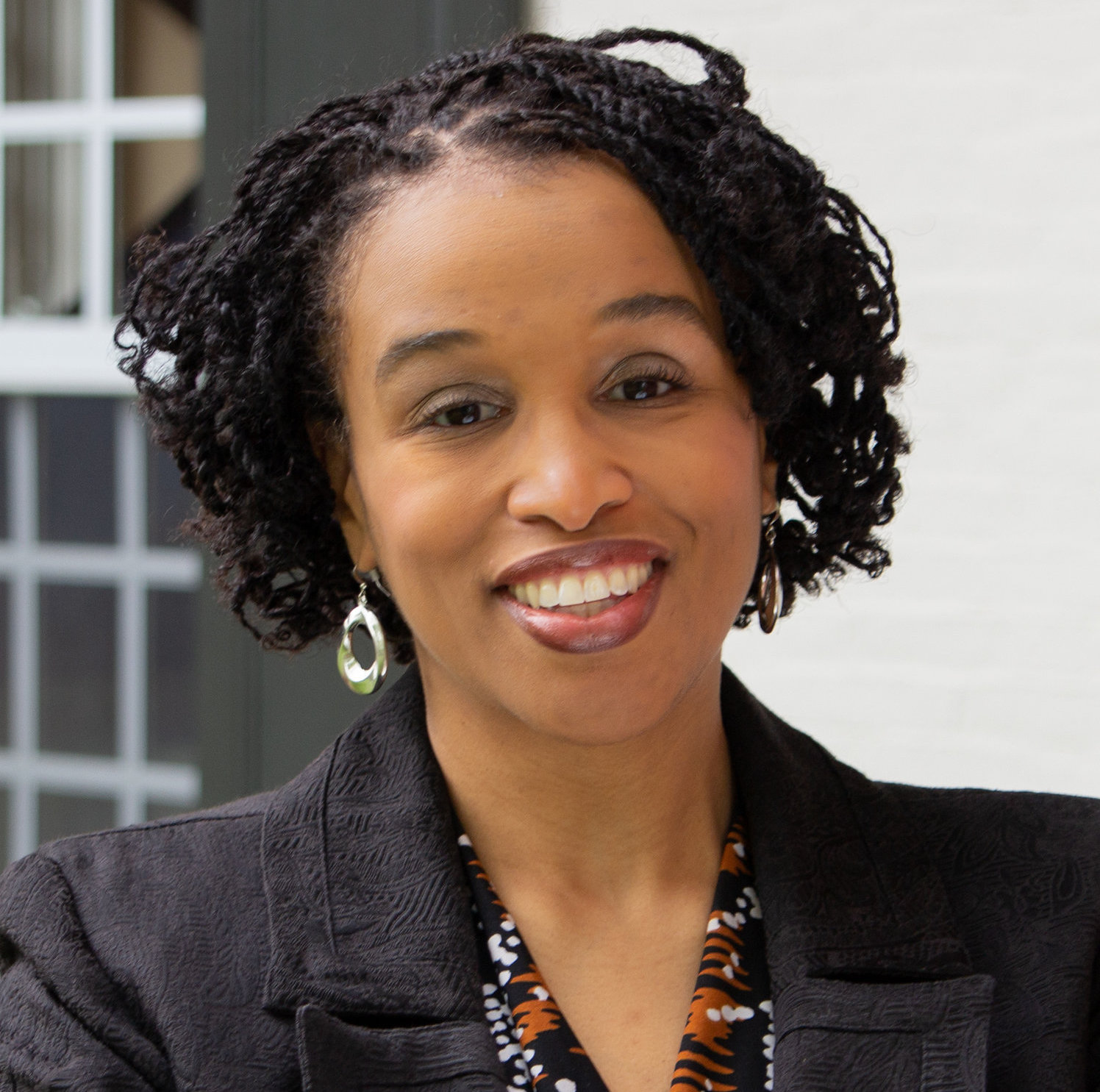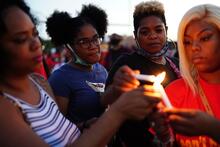Creating, Sustaining, Persisting
Almeda M. Wright, associate professor of religious education at YDS, has an engineering degree from M.I.T., an M.A. in teaching from Simmons College, a M.Div. from Harvard, and a Ph.D. from Emory. Her 2017 book, The Spiritual Lives of Young African Americans (Oxford), brings together her interest in African-American adolescent religion and public life. Based on interviews with African-American young people, her book says the church has much to learn from the young people in its midst – their struggles, their idealism, the theological reflection they do every day regarding a disconnected spirituality that removes God from issues of racism, poverty, sexism, and violence. Adults, she argues, should learn to listen attentively to young people and be alert to the spaces they seek for creating theological meaning and hope, whether in church or music or spoken-word poetry. She spoke to Reflections earlier this year.
On the future of institutions …

Almeda Wright: One of the struggles now is to figure out which institutions we can still count on. For many, key institutions have been a source of hope – like universities, churches, and even families. But these institutions don’t look or feel the same right now. Even with all of the challenges of a place like YDS, for the most part it is a place where students felt safe and relatively more equal, a place where they could think through ideas together. But we can’t physically go back to that right now. We’re adapting.
Congregations face their own challenges. Gathering in person is such a hallmark of church for me. There’s obviously been a genuine loss of community these months – the ability to hug someone, or show a smile in a time when we’re wearing masks. Now we’re forced to examine the depths of this need and this loss. The institutional turmoil is shaking people’s foundations. But there’s another side to the coin, and strangely it gives me a sense of hope. That is, we’re showing we can adapt and persist day to day through these disruptions. Churches and universities have had to get creative in how they approximate the practices that are so important to their identities and to individual members. It is this creativity and adaptability that has renewed my hope.
A huge narrative is at work that says there was a time when we were low and God provided, and there was another time when we were low and God provided. And there is this time, and there will be other times.
Regarding the need for spiritual agility …
Wright: My family did a Zoom dinner for Easter – eight or 10 people across several states on different screens at a given time over three or four hours. There was laughter and joy. It met a need. But it’s not the same as being physically together. We’re going to have to keep working at this – working on our agility. Some of the places I look to for hope aren’t sustainable right now. Most churches aren’t going to be gathering for some time. In church, standing shoulder to shoulder in prayer, you feel connected to the divine in a different way than you do when you pray by yourself. In this period, though, how do we pray together? How do we do communion? What should liturgy look like? Church practice will evolve, because we can’t go back to normal. It will have to be a new normal, where it will still be a place of hope, because communal life is a source and enhancement of hope.
On what youth can teach the grown-ups …
Wright: This period is especially hard on teens living in a world where they can’t be with friends or pursue young love. And I am certain that it feels like a problem of epic proportions to them! But they’re being creative, making peace with the situation. They’re figuring out how to do dance parties on Zoom by listening to the same music at the same time, or arranging drive-by birthday parties in social-distancing ways. They’ve got things to teach the adults.
Adults, meanwhile, need to step up and be honest about their own anxieties and uncertainties around this crisis – and be a physical source of hope to young people. Be honest about showing young people the depth of who you are. Be present to them. Give them your undivided attention. Devices off! We’re in device overload right now. Wrestle with what’s necessary to sustain a family spiritual life and figure out what to do together, whether it’s online worship or prayer or reading scripture. It’s one of the few gifts of these days that I get to spend more time at home with my young daughter. I do mourn the loss of child care, but I’m secretly excited to be with my child in new ways. It’s time with her I’d never have had.
In the face of racism and injustice…
Wright: Working with African-American youth over the years has taught me that hope is so important to their wellbeing, but it is not something that is easily taught or even held onto. As I reflect on the murders of George Floyd, Breonna Taylor, and Ahmaud Arbery, and the national responses to them, the essential nature of hope becomes even more clear. Every day it seems, but definitely more frequently than we would want, young and old African Americans have to deal with the reality of systemic racism and police brutality (and other affronts to our humanity). These frequent injustices and public reminders that we live in a society that does not value Black lives equally make it difficult to hope. In fact, hope that is not connected to action in face of injustice is of no use to Black youth. Instead, I have to draw more deeply from the well of my belief in a God who is with and on the side of the oppressed in times like these. And I have to listen to and take seriously the struggles of young African Americans who may not believe in or find solace in God or traditional faith communities during these times. I have learned to pay attention when they tell me that their hope, instead, is connected to their ability to move or act and be together in protests or that their hope is challenged when they are asked over and over to wait for change instead of seeing/making changes.
On the matter of hoping vs. wishing …
Wright: Hope is not a mere projection of good ideas into the future or simply a wish for a good outcome. Hope is an active orientation toward the good. It’s connected to personal agency, the ability to act and affect the future in a positive way. Nevertheless, hope is not tied solely to my ability to act. There’s a theological dimension. Hope says God is present – God who cares about the earth and cares about us and accompanies us in the midst of suffering. Hope reminds me to look beyond the current situation to a sustaining force that is much bigger than any pandemic. A huge narrative is at work – the sovereignty of God – which says there was a time when we were low and God provided, and there was another time when we were low and God provided. And there is this time, and there will be other times. God and God’s concern for us are bigger than any pandemic. But we still have a creative role to play – part of that is to trust God and find better solutions every day. I frequently draw on the work of Evelyn Parker who writes about “emancipatory hope.” Emancipatory hope is essential for us seeing God at work in the world liberating people from the violence and despair of racism, sexual oppression, and classism.**
===========================
** Evelyn L. Parker’s books include Between Sisters: Emancipatory Hope out of Tragic Relationships (Cascade, 2017) and Trouble Don’t Last Always: Emancipatory Hope Among African American Adolescents (Pilgrim Press, 2003). “My thesis is that African-American adolescent spirituality as emancipatory hope fosters an intricately woven life of Christian hope, holiness, and social activism against injustice,” she writes in Trouble Don’t Last Always. “The concept of emancipatory hope means expectation that dominant powers of racism, classism, sexism, and heterosexism will be toppled and that African-American adolescents have agency in God’s vision for dismantling these powers of domination.”
